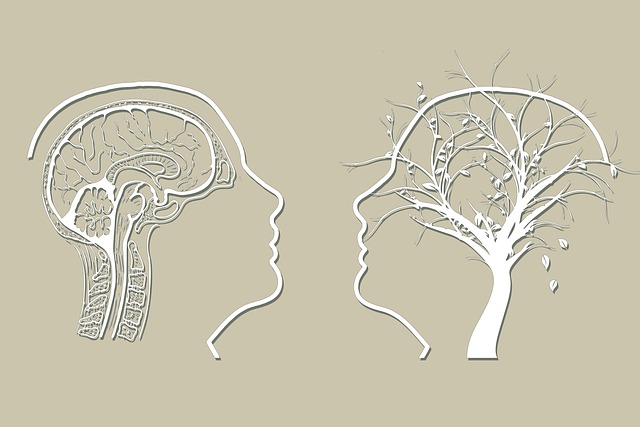Burnout among mental health professionals treating young adults with psychosis is a growing concern, exacerbated by long hours, high patient demands, and emotionally taxing sessions. Early identification through recognizing decreased therapy engagement is crucial for interventions to prevent symptom exacerbation. Strategies to combat burnout include self-care practices, anxiety relief techniques, stress management workshops, and peer support networks. Tailored psychological support equips young adults with psychotic disorders with coping mechanisms and resilience, empowering them to navigate emotional challenges effectively, highlighting the significance of Therapy for Young Adults Psychosis.
Healthcare provider burnout is a growing concern, particularly among young adults with psychotic disorders. This article delves into the understanding of burnout within this demographic, identifying its early signs in patients with psychosis. We explore effective prevention strategies tailored for healthcare workers, emphasizing self-care and work-life balance. Additionally, we discuss the pivotal role of therapy in managing and mitigating burnout, focusing on therapeutic interventions designed specifically for young adults grappling with psychotic disorders.
- Understanding Burnout Among Healthcare Providers
- Identifying Early Signs of Burnout in Young Adult Patients with Psychosis
- Effective Burnout Prevention Strategies for Healthcare Workers
- The Role of Therapy in Managing and Mitigating Burnout for Young Adults with Psychotic Disorders
Understanding Burnout Among Healthcare Providers

Burnout among healthcare providers is a growing concern, especially within the mental health sector. It’s crucial to recognize that this isn’t just fatigue; it’s a complex state characterized by emotional exhaustion, depersonalization, and a sense of reduced personal accomplishment. Healthcare professionals, particularly those offering therapy for young adults with psychosis, often bear heavy burdens, dealing with intense caseloads and high-stress situations on a daily basis. This can lead to feelings of being overwhelmed and detached from their work, which are key indicators of burnout.
Understanding the factors contributing to this phenomenon is essential. Long working hours, high patient demands, and limited resources can significantly impact mental well-being. Furthermore, the nature of therapy itself, especially when addressing complex conditions like psychosis, can be emotionally taxing. Therefore, promoting self-care practices and implementing strategies for anxiety relief and stress management becomes paramount. By prioritizing these aspects, healthcare providers can foster resilience and sustain their ability to deliver quality care in the long term.
Identifying Early Signs of Burnout in Young Adult Patients with Psychosis

Burnout among young adults with psychosis is a growing concern, often masked by the ongoing challenges of managing their mental illness. Early identification of burnout signs is crucial, as it allows for timely interventions to prevent exacerbation of symptoms and promote recovery. Healthcare providers must be vigilant in recognizing subtle cues such as decreased engagement in therapy for young adults with psychosis, which could indicate disinterest or exhaustion.
Through Mental Health Policy Analysis and Advocacy, we can foster a supportive environment that reduces the Mental Illness Stigma Reduction Efforts, encouraging open conversations about burnout. By integrating positive thinking practices into treatment plans, healthcare providers can empower young adults to develop coping mechanisms, enhancing their resilience against burnout. Regular assessment of mental well-being alongside traditional psychosis management strategies is key to supporting this vulnerable population.
Effective Burnout Prevention Strategies for Healthcare Workers

Healthcare workers often face high-stress environments, leading to burnout if left unaddressed. Preventing burnout is a proactive approach that involves fostering emotional resilience and implementing support systems tailored to their unique needs. One effective strategy is integrating emotional regulation techniques into professional development programs. This can include mindfulness practices, stress management workshops, and peer support networks that encourage open communication.
Additionally, community outreach program implementation can play a vital role in preventing burnout by connecting healthcare workers with external resources and creating a sense of community. Programs focusing on mental health awareness, anxiety relief techniques, and social connections can help reduce stress levels and provide much-needed respite from demanding work environments. These initiatives ensure that healthcare professionals have the tools and support to navigate their challenging roles while maintaining well-being.
The Role of Therapy in Managing and Mitigating Burnout for Young Adults with Psychotic Disorders

For young adults grappling with psychotic disorders, managing burnout is a complex journey that often requires more than just medical intervention. Therapy plays a pivotal role in this process, offering a safe space for individuals to explore and navigate their mental health challenges. Through tailored psychological support, young adults can develop coping mechanisms that go beyond symptom management.
The focus on therapy for psychosis extends beyond treating specific disorders; it empowers individuals with mind over matter principles, fostering emotional healing processes. By delving into trauma support services and incorporating evidence-based practices, therapy helps young adults build resilience against burnout. This holistic approach not only alleviates immediate distress but also equips them with long-lasting strategies to maintain mental well-being in a challenging world.
Healthcare provider burnout is a growing concern, particularly among young adults with psychotic disorders. By understanding the early signs and implementing effective prevention strategies, we can mitigate this issue. Effective burnout prevention includes a multifaceted approach, such as promoting work-life balance, fostering support systems, and encouraging self-care practices. Additionally, therapy for young adults with psychosis plays a crucial role in managing stress and improving overall well-being. Integrating these strategies into healthcare settings can create a more sustainable and compassionate environment for both patients and providers alike.












